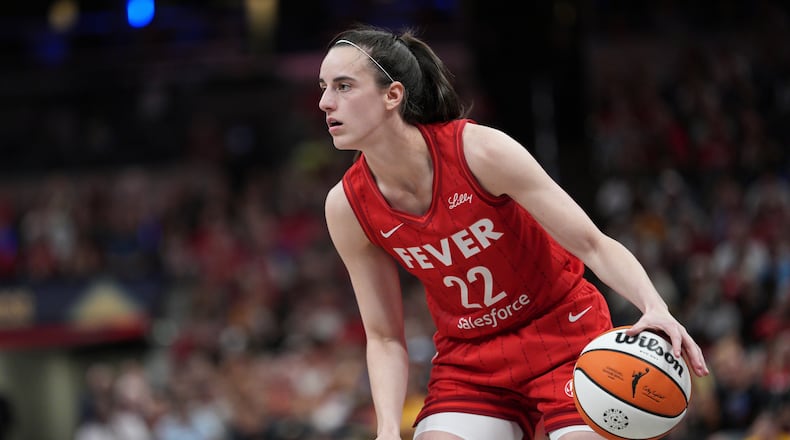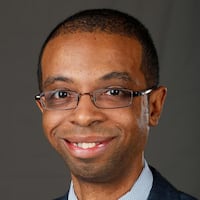“We have an incredible variety of books,” said Judy Chesen, chairperson. “If someone walks away amazed by something or learns more than what they knew, the (series), to me, would be a success. A lot of times, especially as you get older, you feel as if you’ve seen everything but you haven’t.”
Vice Chair Helen Jones said the desire for community connection remains a huge draw.
“We keep it fresh by (having) new authors, new ideas and new subjects,” Jones said. “There’s also a real hunger to be in groups and have gatherings again. I think it’s still fresh on people’s minds about how we were all sitting at home doing things on Zoom not too long ago and now we can all be back in the community. I also think there’s a hunger just to learn more about our world.”
The series launches with spotlighting Jane Eisner, author of “Carole King: She Made the Earth Move.” The presentation will take place at the University of Dayton’s Roger Glass Center for the Arts and is in partnership with the University of Dayton Chapter of the Society of Professional Journalists, the Department of Music, the Alumni Chair in the Humanities and Jewish Federation’s Women’s Philanthropy.
Credit: CONTRIBUTED
Credit: CONTRIBUTED
The event will feature a performance by student ensembles and faculty of the University of Dayton Department of Music. King’s tapestry of iconic songs include “I Feel the Earth Move,” “You’ve Got a Friend,” “It’s Too Late” and “(You Make Me Feel Like) A Natural Woman” to name only a few.
Organizers are also pleased to spotlight Beejhy Barhany, an Ethiopian-Israeli chef and restauranteur. Her debut cookbook “Gursha: Timeless Recipes for Modern Kitchens from Ethiopia, Israel, Harlem, and Beyond,” co-written with food writer Elisa Ung, traces her life from childhood in Tigray, Ethiopia, to exile in Sudan, then on to Israel, and ultimately settling in Harlem, New York, where she founded Tsion Café.
The title of the book loosely translates as the act of “feeding one another.” Her work includes over 100 recipes, including legamat (Sudanese doughnuts) and shakshuka, as well as hybrids like Berbere Fried Fish, Injera and Queen of Sheba Chocolate Cake. Barhany will appear Dec. 7 at Beth Abraham Synagogue in Oakwood.
Credit: CONTRIBUTED
Credit: CONTRIBUTED
Chesen, who has dined at Tsion Café, considers Barhany’s inclusion in the lineup to be prominent.
“Beejhy Barhany is going to be a real standout,” she said. “I so look forward to her coming to Dayton.”
Jones also finds Barhany appealing from a cultural standpoint. Jones and her 21-year-old adopted daughter, who is from Ethiopia, particularly finds enjoyment in savoring Ethiopian cuisine.
“We’re always really excited to connect with anybody from that community and eat Ethiopian food,” Jones said. “To have Beejhy Barhany in town to talk about her culture and food is really exciting.”
Jones isn’t Jewish but embraces another opportunity to advocate for the Jewish community and the depth of their stories.
“This series has always had a lot of support in the Dayton community,” she said. “My reason for being a part of this amazing group of people is just to be able to educate the community more about the Jewish community and the history of the Jewish people here in Dayton and in Ohio and around the world, hopefully to ease tensions and bring about awareness.”
The 2025-26 lineup of 11 events includes a mixture of in-person author presentations and virtual Zoom events. Books will be available for purchase at each in-person event as well.
2025-26 CULTURAL ARTS AND BOOK SERIES SCHEDULE
OCTOBER 2025
Jane Eisner, “Carole King: She Made the Earth Move”
2 p.m. Sunday, Oct. 19 (Opening Event)
Roger Glass Center for the Arts, 29 Creative Way, Dayton
Cost: 10 per person, no cost for students with student ID.
As part of Yale University’s Jewish Lives series, renowned journalist Jane Eisner has written a biography of the iconic singer and songwriter.
NOVEMBER 2025
Barbara Josselsohn, “The Forgotten Italian Restaurant”
2 p.m. Sunday, Nov. 9
Woodbourne Library, 6060 Far Hills Avenue, Centerville
Cost: Free
“The Forgotten Italian Restaurant” is the third and concluding book in author and teacher Barbara Josselsohn’s series, “Sisters of War.” The story alternates between World War II and the present day.
Bill Rabinowitz, “Buckeye Brotherhood: How Ohio State Navigated A New World To Win A National Championship” with foreword by Urban Meyer
6:30 p.m. Thursday, Nov. 20
Boonshoft Center for Jewish Culture and Education, 525 Versailles Drive, Centerville
Bill Rabinowitz was the longtime Ohio State beat writer for the Columbus Dispatch, covering the Buckeyes since 2011. In his current work, “Buckeye Brotherhood,” Rabinowitz takes readers inside The Ohio State Buckeyes’ run to their first national championship in a decade.
Credit: CONTRIBUTED
Credit: CONTRIBUTED
DECEMBER 2025
Beejhy Barhany, “Gursha: Timeless Recipes for Modern Kitchens from Ethiopia, Israel, Harlem, and Beyond”
2 p.m. Sunday, Dec. 7
Beth Abraham Synagogue, 305 Sugar Camp Circle, Oakwood
Through personal essays and stories, Barhany frames her recipes in the context of BetaIsrael (Ethiopian Jewish) history and identity.
JANUARY 2026
Lee Yaron, “10/7: 100 Human Stories”
7 p.m. Tuesday, Jan. 13 via Zoom
The 30-year-old Yaron, an investigative journalist, is the youngest winner of the National Jewish Book Award. In this work, according to press notes, she weaves stories “illuminating the lives of a very unusual group that illustrates the diversity and complexity of Israeli society. Her portraits include peace activists, bedouins, Israeli Arabs, Nepalese guest workers, Holocaust survivors, and refugees from Ukraine.”
Howard Megdal, “Becoming Caitlin Clark: The Unknown Origin Story of a Modern Basketball Superstar”
7 p.m. Sunday, Jan. 25 via Zoom
In this work, Megdal, a sports journalist and editor, presents “a multifaceted portrait of Clark’s superstardom,” according to press notes. “Not only is Clark one of the most dominant faces of the WNBA, but she is also known globally for her basketball prowess. Megdal is able to trace the development of Iowa women’s basketball from the popular 1920s 6-on-6 game and examines Caitlyn Clark’s style of play in the light of those who preceded her.”
Credit: CONTRIBUTED
Credit: CONTRIBUTED
FEBRUARY 2026
Sarah Hurwitz, "As a Jew: Reclaiming Our Story From Those Who Blame, Shame, and Try to Erase Us"
7 p.m. Thursday, Feb. 12 via Zoom
Hurwitz, a former speechwriter for Michelle Obama, creates a work centered on what it means to be Jewish in today’s world. “Hurwitz insists that being Jewish is not something to apologize for, hide, or water down,” according to press notes. “She critiques how Jews are often left out of conversations about oppression or even blamed for privilege.”
Gila Fine, “The Madwoman in the Rabbi’s Attic: Rereading the Women of the Talmud”
12 p.m. Tuesday, Feb. 24 via Zoom
Fine explores the portrayal of women in the Talmud using tools of modern literary theory to reread classical rabbinic texts.
Credit: CONTRIBUTED
Credit: CONTRIBUTED
MARCH 2026
Richard Kreitner, “Fear No Pharaoh: American Jews, the Civil War, and the Fight to End Slavery”
9:45 a.m. Sunday, March 8
Temple Israel Synagogue, 130 Riverside Drive, Dayton
Kreitner explores the engagement of American Jews in the moral and political dramas of the Civil War era including Judah P. Benjamin, a Louisiana senator who became Jefferson Davis’ confidant, and abolitionist Ernestine Rose.
Christopher C. Gorham, “Matisse at War: Art and Resistance in Nazi Occupied France”
2 p.m. Sunday March 22
Bethany Village, The Village Center/Serr Grand Room, 6443 Bethany Village Drive, Dayton
Gorham explores a lesser-known segment of the life of artist Henri Matisse, specifically his wartime creativity and moral resolve.
Credit: CONTRIBUTED
Credit: CONTRIBUTED
APRIL 2026
Dan Slater, “The Incorruptibles: A True Story of Kingpins, Crime Busters, and the Birth of the American Underworld”
2 p.m. Sunday, Apr. 26 (Closing Event)
Wright Memorial Public Library, 1776 Far Hills Avenue, Oakwood
Slater takes readers into the early 1900s, prior to World War I, when New York City was a “vortex of vice and corruption,” according to press notes. “On the Lower East Side, Eastern European Jews formed crime syndicates. As awareness of this underworld spread across America, so did antisemitism. This is why a coterie of affluent German Jewish uptowners worried about the uncertain future of all Jewish Americans and organized a secret vice squad called the ‘incorruptibles’ who waged war on the sin they saw as threatening the future of the community.”
Credit: CONTRIBUTED
Credit: CONTRIBUTED
For more information about the 2025-26 series, contact the Jewish Community Center of Greater Dayton by phone at 937-610-1555 or visit jewishdayton.org.
About the Author









